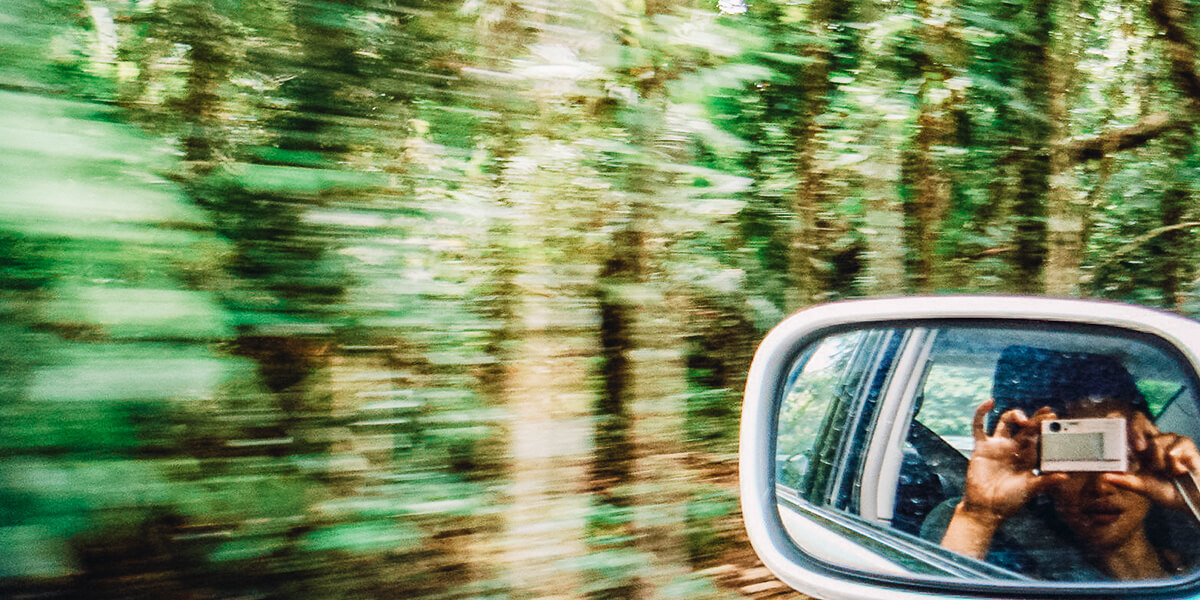
Road tripping in Far North Queensland, Australia in 2008 with nothing but this little Sony Cybershot DSC-T10
A few months ago, we were having dinner at a restaurant in Cusco just down the street from our house. At the table next to us was a family – grandparents, parents, and a child. They were likely on vacation. One of the women had her phone out on the table and was watching something. We thought maybe she had taken some video of their day. It turns out she was watching some sort of soap opera. No one at their table thought it was strange.
But we did. We had become accustomed to dodging phones attached to selfie sticks in the Plaza de Armas, navigating our way through crowds stopping to take photos of buildings, stones, alpaca and each other. We had gotten used to seeing people on their phones looking for restaurants and tourist sites. But seeing a woman on her phone watching a soap opera while having dinner at a restaurant with her family just made us sad.
Digital fatigue and our move towards a more unplugged life
The iPhone was launched the year that we met. Nobody was taking photos or videos with their phones. Facebook and Twitter had only recently been introduced to the mainstream. They hadn’t quite taken off at that point. Instagram. Whatsapp. Snapchat. They didn’t exist in the world yet.
Back then you travelled without devices. You checked your email at the Internet cafe. People still travelled with guidebooks and took photos with cameras that were separate from their phone.
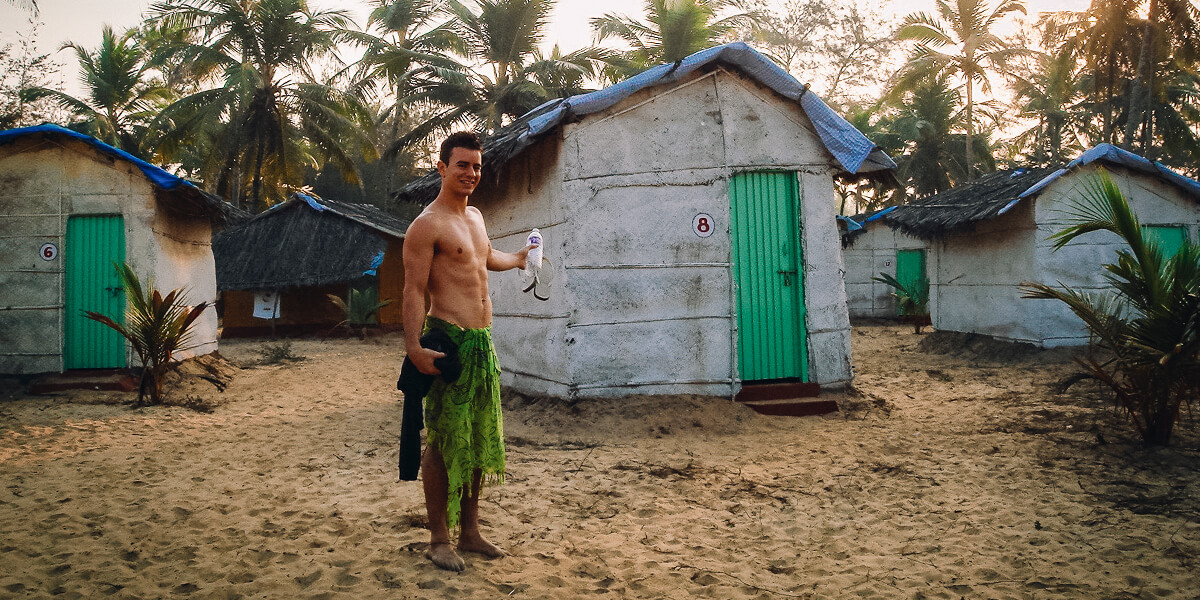
We’re pretty sure there’s no wifi here – Benaulim Beach, Goa, India, 2008
We were early adopters of Facebook and felt at ease with the emerging technologies but we were suffering from digital fatigue and were looking to unplug for a little while. Our gadgets at that time were her Nokia 3100 and Blackberry Pearl, and his D-SLR. We needed a break. It was time to unplug.
Through those early years, we backpacked through India, road tripped across Australia, rode scooters around Bali. We had no devices, took few pictures, and rarely posted to social media. We wanted to feel the freedom of being disconnected from a world that we felt was weighing us down. There was a strong desire to understand what it meant to truly present wherever we were, without gadgets coming between us and the experience.
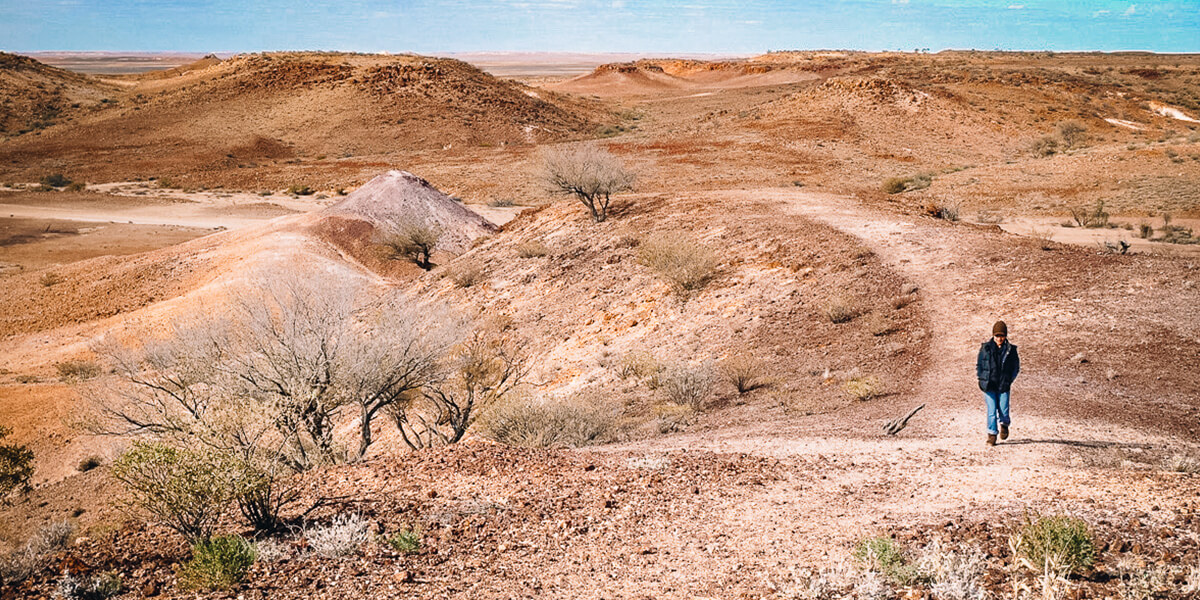
Nope no wifi here either – Flinders Ranges, Australia, 2010
We have often taken long breaks from digital all together – taking it to the extreme with 10-day Vipassana silent meditation retreats or month-long shamanic plant diets in the jungle. Going in to these spaces and completely disconnecting from the noise of the outside world was scary. But coming out, we always felt rejuvenated and refreshed, with a renewed sense of clarity.
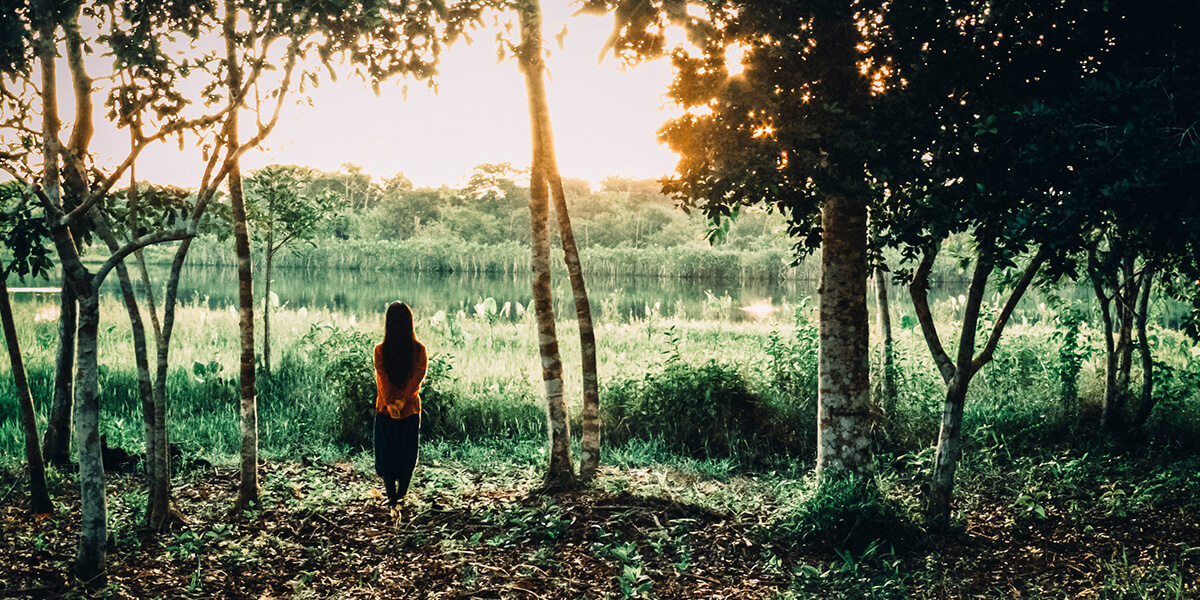
In the village of Dinamarca in the Peruvian Amazon, there’s one community phone a 30 minute walk away – Ucayali, Peru, 2013
We went extreme analog for years
When everyone was racing towards digital, we would buy cheap analog cell phones and a local SIM card in whatever country we were in and then sell them when we left. We always bought just one phone and would use Facebook and Skype to stay in touch with people abroad.
When we settled in Cusco, our primary phone for years was a (decidedly un-smart) Nokia 3120. As always, we shared it between the two of us. And we only ever used it for SMS texts and phone calls. We used it so rarely that we would sometimes forget to take it with us when we went out. And when we did bring it with us, it was a source of a few snorts and giggles among some of our friends. But it didn’t matter. It served its purpose. The battery lasted forever. We had no attachment to it. We could drop it and we didn’t worry if it broke. It wouldn’t. We didn’t care if someone stole it. Except that nobody ever would.
We went seven years without a digital phone. And here’s the thing – we never felt we were lacking or unable to do what we needed to do because of our choice of phone.
We both had laptops for when we needed to be online. We used an iPad Mini when we were on the road – for watching movies, reading, making notes, and sometimes even taking photos and video. But we made a deliberate decision to limit our screen time. Mainly because we noticed how screens affected our energy, our state of mind, and our ability to be present.
We’re more digital minimalists than Luddites
It might be hard to comprehend how a couple can share a phone. For years. How a Nokia 3120 could be a sufficient device for modern living. It does sound strange, doesn’t it? (This guy doesn’t think it’s so strange.)
But the reality was that it actually worked really well for us. We spend most of our time together. When we’re not together, one of us has the phone. And when we’re not on our computers, we prefer to be gadget-free if possible.
But it’s not because we’re against technology. In actual fact, we think the digital space is great. We see the benefits of technology and the amazing ways it can help and enhance people’s lives. It’s part of the reason we can be as mobile as we are. We can easily stay connected to friends and family. We’re able to work with people anywhere in the world regardless of location. We are not tech averse by any means. But we don’t ever want to feel like it’s taken over our lives. Like we’re unable to function without it.
For us, part of simplifying our lives is to be mindful of what we use and what we buy. To reduce, reuse and recycle what we can. To consider what it is we really need and find the items that offer that functionality.
These days, we each have a smart phone. We inherited one a few years back and after some thought we decided we should get another. They’re older phones and we don’t feel the desire to upgrade because they suit our needs just fine. We have only the apps that are absolutely necessary to, which aren’t many, and we try to limit our phone use. Meaning, use only when necessary (ex. to find a location) and not if it interrupts other more important interactions (ex. conversation).
A smartphone addicted culture
Technology is useful. There’s no denying that. But how do we find the balance? How can we be more present? Can we reduce the noise? Do we want to connect more deeply with others?
It only takes watching others to get a sense of how digital screens affect our capacity to connect in an analog world. And even more than that, the (in)ability to be alone.
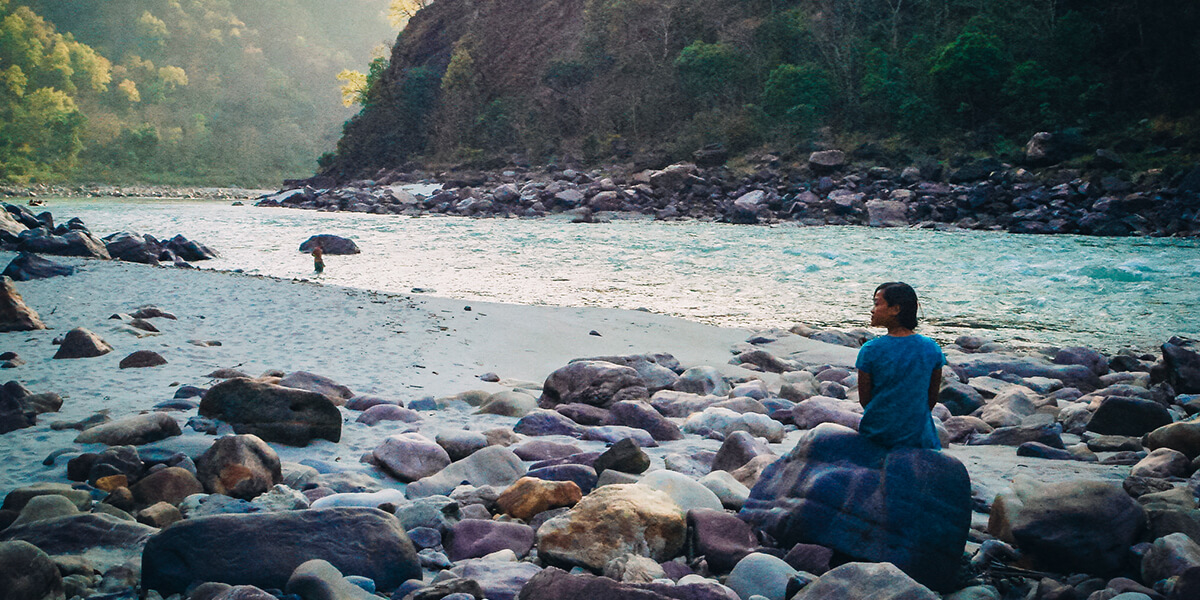
A moment of quiet introspection at the Phool Chatti Ashram in Rishikesh, India in 2009
You see it time and time again. People in cafes and restaurants – there together but not really there together. Or a person by themselves. Passing time by using their phone to find someone who’ll interact with them. Liking. Following. Posting. Waiting for reactions. Yearning for approval.
Don’t get us wrong. We love how easy it is these days to stay connected and to access information. But does it have to be 24/7? And how deep can those likes and follows truly be? A single click. A few emoticons. In our fast-paced purpose-driven world, where is the space and the time to cultivate meaningful relationships? And are we suffering for it?
Our digital FOMO is causing us ever-increasing anxiety and is preventing us from being completely present. Our devices are our culture’s newest addiction. We crave the immediacy of our digital interactions no matter how short or superficial they may be. With every like and follow, “dopamine neurotransmitters release chemicals that make us feel pleasure. And the more we get, the more we want. When these reward circuits are overloaded with near-continuous spikes in dopamine, our craving for reward becomes a hunger that has no bounds”.
Our gadgets are getting in the way of enjoying pure unfiltered experiences. We are constantly distracted, seeking the addictive reward of approval. Even when we’re with others, we’re checking our phones, texting, checking in, posting pictures and video. As MIT professor Sherry Turkle suggests – Are we all just alone even when we’re together?
This classic video says it all:
Setting daily digital boundaries
While we understand the need for connectivity – whether for work, for family, for emergencies – we’ve purposely set some ground rules in our own lives that keep us mindful of our digital use and when it’s time to shut down. We’ve made a conscious decision to switch off regularly and create spaces where we are fully present with each other and with ourselves. We choose to set boundaries where we allow ourselves to unplug. Because we definitely understand how easy it is to get sucked into the vortex. We feel it too!
1) No phones or media of any kind at the dining table.
Meal times are the perfect opportunity to turn off the devices, enjoy our food and have conversations with each other and other people. We can check our messages later.
2) If we’re heading out together, take just one phone.
We don’t need both phones. Just one for emergencies.
3) Turn off the router at night.
When we go to sleep, the Internet does too. This decreases electromagnetic radiation at least for the night and we actually find it helps us sleep better. Plus there’s no reason to check your phone for messages at this time. Nothing’s coming through that can’t wait until morning.
4) Take a break from the screen and go outside.
Like many people, we spend a lot of time on our computers. We make it a point to take a break once a day and go outside. Depending on where we are in the world, we might take a walk, sit in the park or grab a coffee.
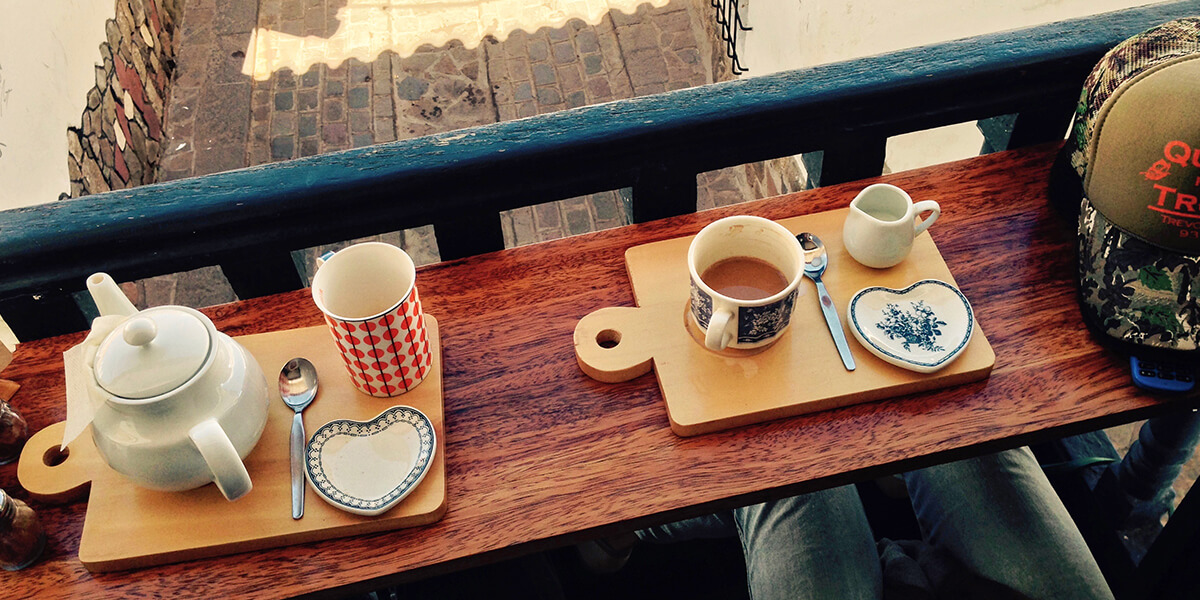
Taking a break at one of favourite spots in San Blas in Cusco, Peru in 2016. Peeking out under the hat is our little blue Nokia phone.
Life beyond our smartphones
By living in digital moderation, you allow yourself the space to slow down and take a breath. A bit of digital rest gives you a moment to reflect. To gather your thoughts. To notice where you are and who you’re with. It’s disconnecting to reconnect with something other than your smartphone. Because, as hard as it might be to believe, life does exist beyond the digital.
Do you think we’re crazy? How do you feel about the time you spend on your phone? Do you feel it’s balanced? Are you looking to shift your relationship with technology? Let us know. Leave a comment below or join us on Facebook and Instagram!
YOU MIGHT ALSO LIKE...
Why Cusco? What kept us there for so long? – Part 1
Welcome to our 2-part post about the allure of Cusco’s extremes and the reasons that kept us there for so long.
read moreLetting it all melt away in the hot springs
Thermal Baths, Warm Ponds, Hot Springs and all those lovely things…
read more





Beautifully written. I am working on bringing more mindfulness to the amount of technology used in a day. The further I have moved into becoming an event coordinator, I find that I always have an urge to check my phone for other details that may have just come in. I am working to only a lot certain hours of the day for email checking or messaging. Still a lot more space to grow though! Thanks for sharing your insights and experience.
Thanks so much Caroline! It really is a balance, isn’t it? We’re always having to reevaluate, adjust, and try as best as we can to be mindful of our digital use (among all the other things we have to think about!). There’s always that question of “Is this gadget taking over my life?” …And trying to figure out what’s necessary and what we can let wait. The main thing is the awareness of our own habits. And trying to create that quiet space to breathe for a moment each day. Haha it can be a challenge though for sure! M xo